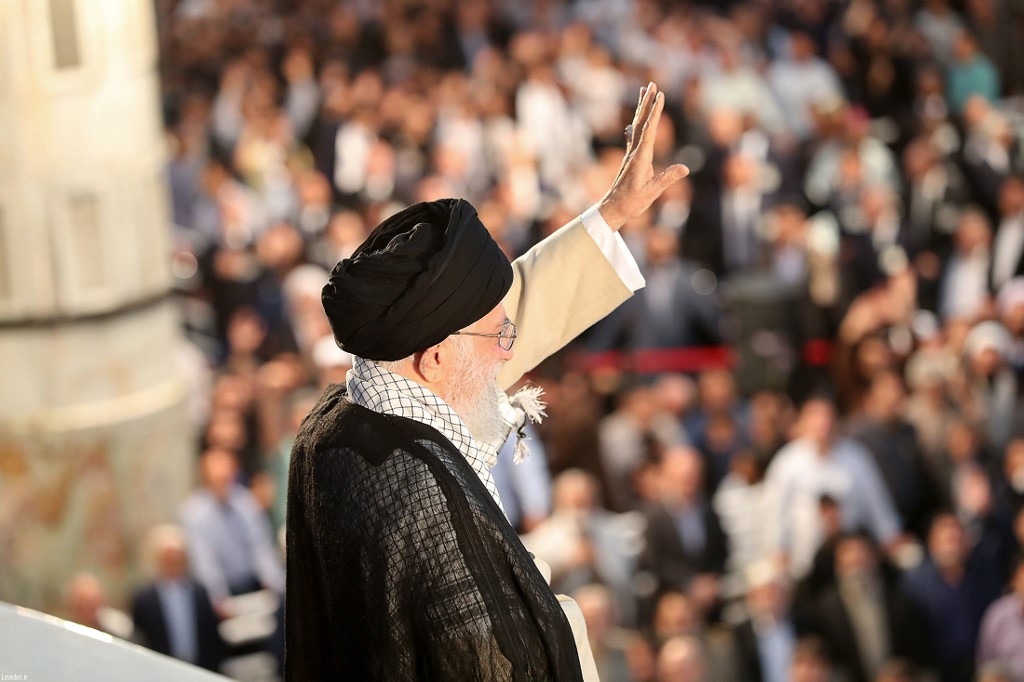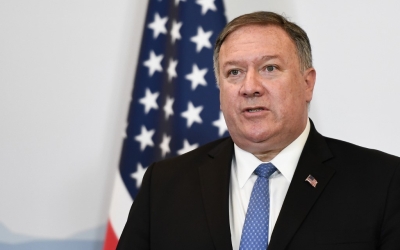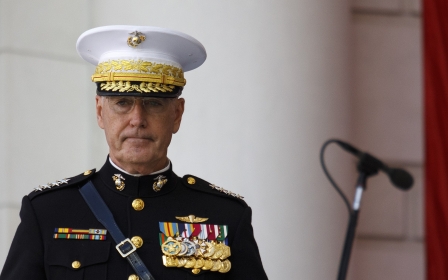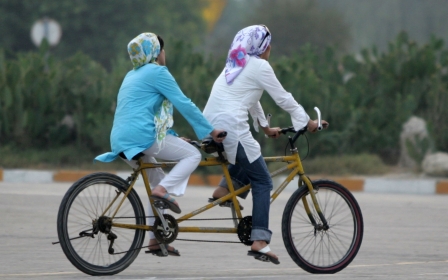Iran's supreme leader says Trump presidency sign of US 'decline'

The United States is facing a "political and moral decline" under the leadership of US President Donald Trump, Iran's supreme leader said on Tuesday, in the latest shot of rhetoric fired between the US and Iran.
"The fate of more than 300 million humans is in the hands of a person with such characteristics, this is a sign of America's political decline," Ayatollah Ali Khamenei said in a speech broadcast live on state television.
"In America itself there is so much discussion on his mental and moral stability," he continued during a ceremony marking 30 years since the death of the Islamic republic's founder.
"When such a person is the president of a country, this shows the political and moral decline of that country."
US and Iranian officials have increasingly taken on a war of words since Trump took office in 2017.
In line with his campaign promise, Trump pulled out of the 2015 nuclear deal between Iran and major world powers and has continued to reimpose sanctions on the Gulf country at an increasing rate ever since.
Rhetoric began reaching a critical level in April after the Trump administration blacklisted Iran's Islamic Revolutionary Guard Corps (IRGC), designating the Khamenei-run government agency as a "terrorist organisation".
Tehran hit back, declaring the US a "state sponsor of terrorism" and Washington's forces in the region "terrorist groups".
The Trump administration began tightened sanctions in May, ordering all countries to halt imports of Iranian oil.
The US has hinted at military confrontation, sending extra forces to the region in response to what it calls Iranian threats.
But on Sunday, US Secretary of State Mike Pompeo said Washington is willing to negotiate with Tehran without preconditions.
"We are certainly prepared to have that conversation when the Iranians can prove that they want to behave like a normal nation," he said.
Responding to Pompeo's remarks, Rouhani said it was up to the United States to return to the negotiating table and resume compliance with the 2015 nuclear deal.
"The other side that left the negotiating table and breached a treaty should return to normal state," he said in comments reported on a government website.
"They threatened us as if they were a military superpower, but now they say they do not seek a war," Rouhani continued.
On Monday, Iranian Foreign Minister Mohammed Javad Zarif said direct talks between Tehran and Washington will not take place until the United States lifts its "economic war" against the country.
Amid the recent escalation, Iran has threatened to stop complying with parts of the agreement, but the UN nuclear watchdog (IAEA) reported last week that Tehran's nuclear programme is still within the restrictions set by the pact.
Middle East Eye delivers independent and unrivalled coverage and analysis of the Middle East, North Africa and beyond. To learn more about republishing this content and the associated fees, please fill out this form. More about MEE can be found here.






